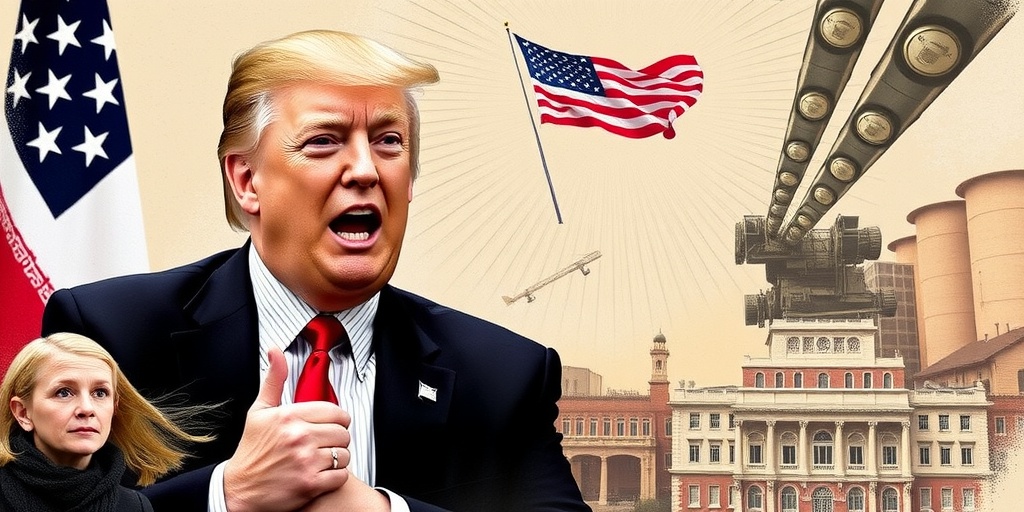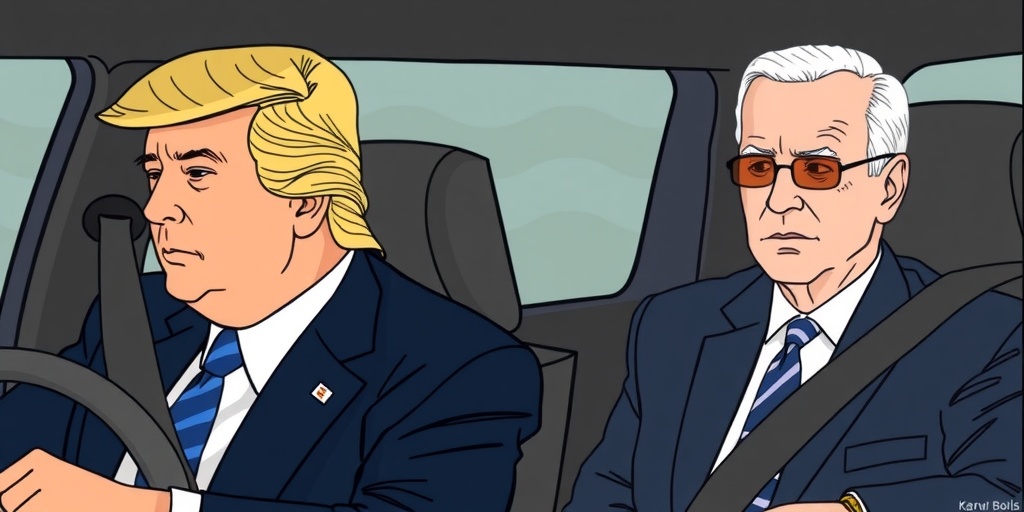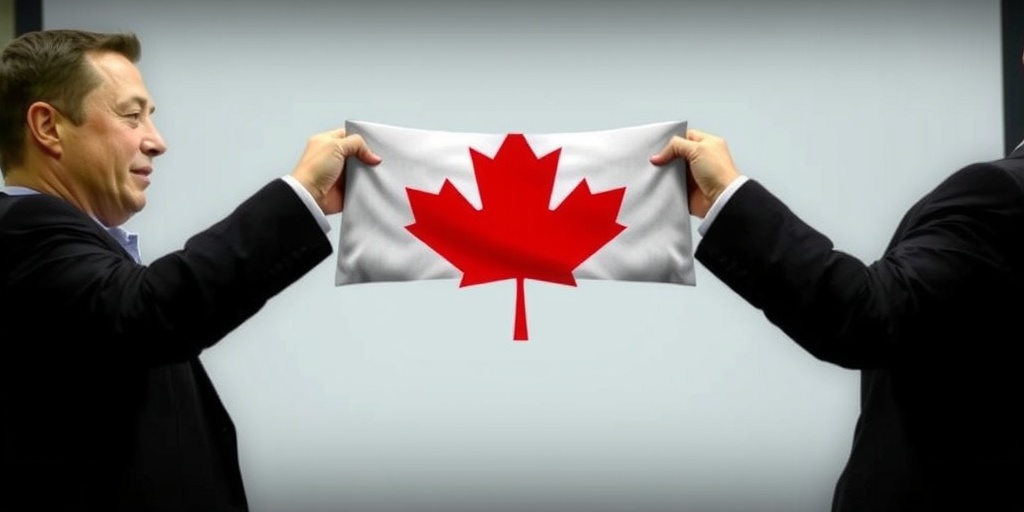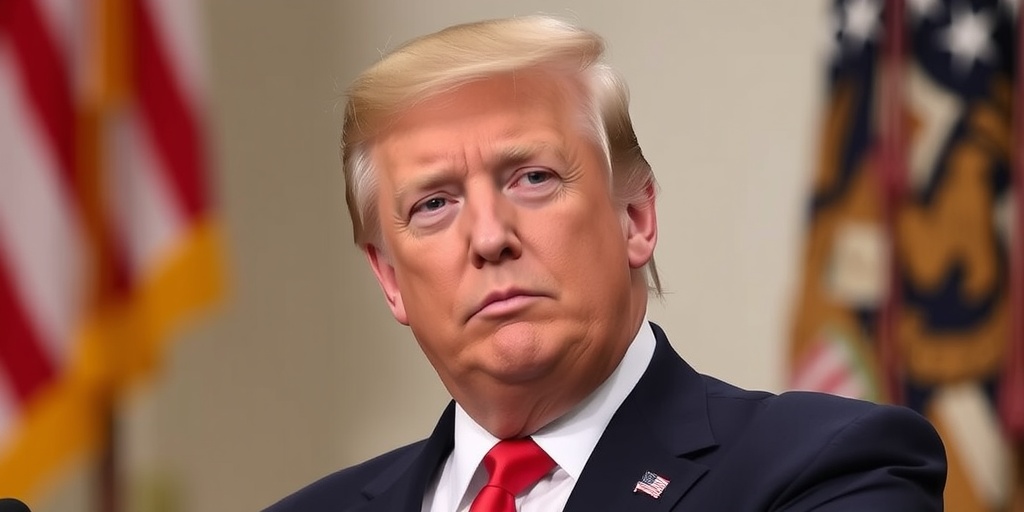Now Reading: Trump Seeks Improved Iran Nuclear Deal Over Obama’s Agreement
-
01
Trump Seeks Improved Iran Nuclear Deal Over Obama’s Agreement
Trump Seeks Improved Iran Nuclear Deal Over Obama’s Agreement

Negotiations on Iran’s Nuclear Program: A Test for Trump Administration
In 2016, then-presidential candidate Donald J. Trump made headlines by proclaiming a bold strategy for dealing with Iran’s nuclear ambitions. He criticized Barack Obama’s diplomatic approach to the Iranian nuclear program, stating that the negotiation team should have simply walked away from the table to improve their leverage. Trump contended that such a departure would have prompted the Iranians to come back pleading for a better deal. "It’s a deal that could’ve been so much better just if they’d walked a couple of times," Trump remarked during an interview with The New York Times, highlighting his belief that the Obama administration had negotiated poorly.
Fast forward to today, and the stakes have dramatically escalated. Iran is purportedly closer than ever to producing a nuclear weapon—partly as a result of the Trump administration’s decision to withdraw from the original nuclear accord in 2018. As negotiations with Iran loom, the U.S. government now has an opportunity to put Trump’s theories to the test.
However, the chasm between the negotiating positions of both nations is striking. Iran appears intent on negotiating a new agreement that resembles the Obama-era accord, which primarily limited the stockpiling of nuclear material. In contrast, the U.S. is advocating for a much more stringent deal that not only addresses Iran’s nuclear capabilities but also seeks to dismantle its missile program and curtail its long-standing support for militant groups like Hamas and Hezbollah.
Time is running out for meaningful dialogue. Senator Jeanne Shaheen of New Hampshire, the leading Democrat on the Foreign Relations Committee, expressed concern over the urgency of the situation. She described Trump’s withdrawal from the Iran nuclear deal as a “serious mistake,” emphasizing the rapid advancement of Iran’s nuclear program. With the expiration of “snapback” sanctions approaching on October 18, Shaheen warned that the U.S. might lose one of its critical leverage points.
The Trump administration is now under pressure to secure a far tougher agreement than the one made during the Obama years. Reports indicate that the administration may utilize the threat of military action to compel Iran into compliance if negotiations falter. However, it remains ambiguous whether such military strikes would involve the U.S., Israel, or a coalition of forces.
On the ground, several politicians have expressed their belief that Iran will be caught off guard by this different approach. Senator Jim Risch, the Republican chairman of the Foreign Relations Committee, asserted that negotiations led by Trump will be dramatically different from those under Obama and his Secretary of State, John Kerry. The negotiations are set to begin this Saturday, with notable businessman Steve Witkoff reportedly leading the American team. However, Witkoff’s lack of expertise in nuclear technology raises questions about the efficacy of the talks.
Key issues to be resolved include the scope of the negotiations themselves—while the previous Obama-era deal was primarily focused on uranium enrichment, it did not tackle Iran’s missile capabilities or its support for terrorism. National Security Adviser Michael Waltz has made it clear that a new agreement must address all aspects of Iran’s military capabilities, advocating for “full dismantlement” of its nuclear facilities to eliminate any pathway to a bomb.
Despite the escalating urgency, there are complexities at play that could affect the outcome of negotiations. Iran’s nuclear advancements have led to the capability of enriching uranium to nearly 60 percent purity, dangerously close to the threshold for weapons-grade material. Intelligence assessments indicate that Iran could develop an atomic weapon in a significantly shorter timeframe than previously anticipated.
However, Iran’s negotiating position may be somewhat weakened compared to past rounds. Israeli action has reportedly obliterated much of Iran’s air defenses surrounding its nuclear facilities, diminishing their ability to retaliate if targeted. Moreover, Iran’s regional allies, including Hezbollah and Hamas, are now perceived as less capable of serving as a buffer against military strikes.
Other geopolitical dimensions further complicate these negotiations. Iran could leverage its relationship with Russia amid U.S. efforts to find a resolution to ongoing issues stemming from the Ukraine invasion. Additionally, reports of plotters within Iran’s Islamic Revolutionary Guard Corps seeking to assassinate Trump also hang ominously over these talks.
Experts are divided on the likelihood of successful negotiations. Dennis Jett, a professor at Pennsylvania State University, questioned the potential for meaningful dialogue, citing the Trump administration’s tendency to rely on the threat of military action as unlikely to yield positive results. Conversely, some analysts believe there remains a sliver of hope for a deal that could appease both Iranian and American domestic audiences, especially if it provides for regular inspections of Iran’s nuclear activities.
With so many layers of complexity and risk involved, the upcoming negotiations between the U.S. and Iran will likely be closely scrutinized as a critical juncture in international diplomacy—a test of Trump’s assertions and strategies that could have lasting implications for global security.
Stay Informed With the Latest & Most Important News
Previous Post
Next Post
-
 01New technology breakthrough has everyone talking right now
01New technology breakthrough has everyone talking right now -
 02Unbelievable life hack everyone needs to try today
02Unbelievable life hack everyone needs to try today -
 03Fascinating discovery found buried deep beneath the ocean
03Fascinating discovery found buried deep beneath the ocean -
 04Man invents genius device that solves everyday problems
04Man invents genius device that solves everyday problems -
 05Shocking discovery that changes what we know forever
05Shocking discovery that changes what we know forever -
 06Internet goes wild over celebrity’s unexpected fashion choice
06Internet goes wild over celebrity’s unexpected fashion choice -
 07Rare animal sighting stuns scientists and wildlife lovers
07Rare animal sighting stuns scientists and wildlife lovers




















